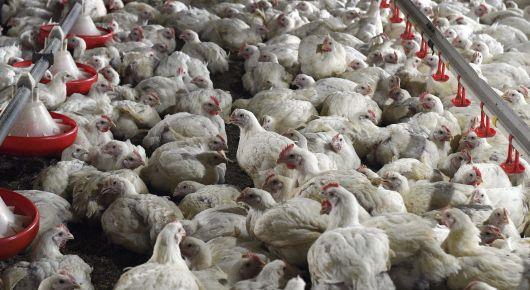The Macedonian poultry sector advances through cooperation

Despite that North Macedonia is a net importer of poultry meat, the country has a long tradition of broiler production.
Given the country’s growing demand for high-quality, fresh poultry, North Macedonia could – with the right public–private collaboration, targeted investment and improvements to farmers’ already prodigious skills – increase the supply of domestically produced nutritious food while improving farmers’ livelihoods and generating employment for young people.
To address these issues, the Macedonian Ministry of Agriculture, Forestry and Water Economy and FAO have gathered relevant actors today in Veles to set the framework for a five-year strategy for the Macedonian broiler subsector. The two-day workshop is part of an FAO project aimed at making the subsector competitive, green and inclusive.
The aim is for the new strategy to maximize the broiler subsector’s contributions to economic growth, job creation and environmental sustainability. During the workshop, key value chain actors will discuss how to enhance linkages and cooperation. Farmers and producers will learn how to differentiate their products based on environmentally friendly production methods, strong consumer branding and quality assurance.
As a result of the workshop, representatives from the public and private sectors will define, agree on and plan the reforms and actions required to address the sector’s bottlenecks for the development of a strong and competitive domestic brand that is able to attract investments and penetrate markets.
Participants include representatives from Government, broiler producers, processors, wholesalers and retailers, and members of the international donor community, academia and the financial sector.
Stronger poultry producers
North Macedonia’s poultry producers are mainly small-scale farmers, and many are unfamiliar with modern production and marketing techniques and are unable to invest in them. They struggle to enter the formal retail sector due to such barriers as intense price competition from imports, lack of value chain coordination, dependence on the import of expensive inputs, and the lack of an enabling policy framework.
To this end, FAO supports farmers in establishing associations, producer groups and cooperatives. The recent formation of the National Association of Poultry Breeders in North Macedonia has been a major step towards achieving this goal. The association will work towards a common vision for a strong domestic brand that consumers can differentiate from imports.
“Better coordination and organization along the value chain benefits everyone,” said Siobhan Kelly, FAO food systems programme advisor. ”Thanks to a unified vision for sector development, policy reforms and enhanced knowledge along the value chain, Macedonian poultry producers can finally rely on the domestic market, and retailers and processing companies will be able to source local produce more efficiently. Meanwhile, consumers will have better access to high-quality produce from their own country.”
19 March 2019, Skopje, North Macedonia
